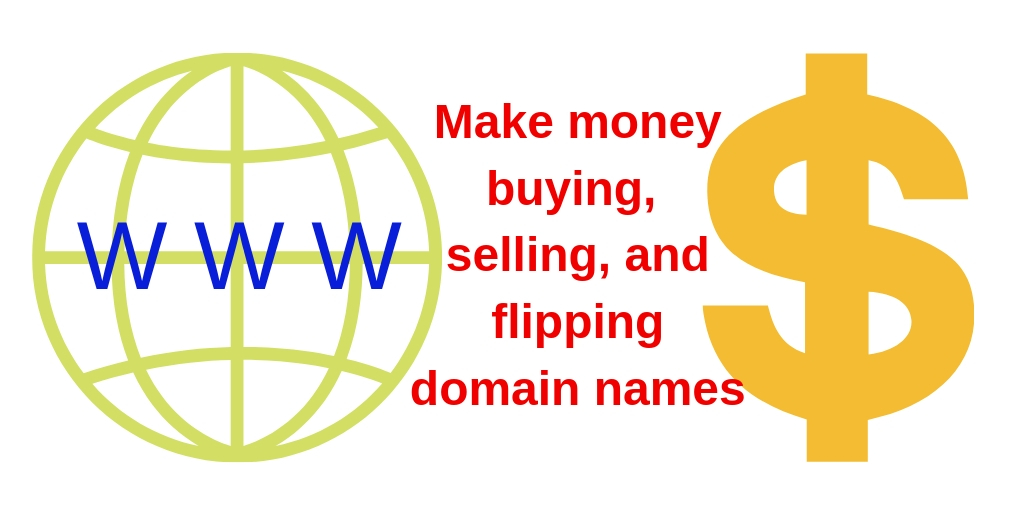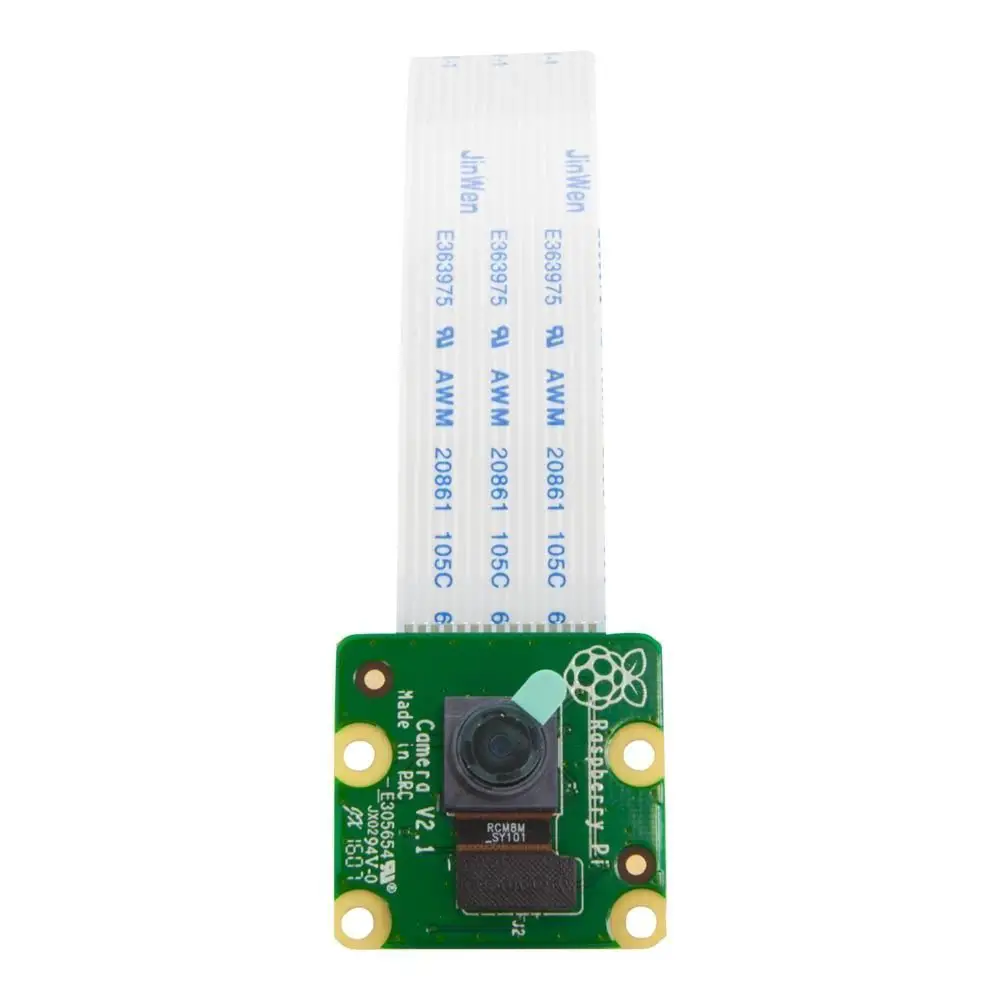; Date: Wed Jan 30 2019
Tags: Make Money Online »»»»
Buy low, sell high, that's the key to successful business. In that light, many folks are buying and selling domain names in a money-making quest. Over the millennia many have gotten rich through knowing when to buy and then when to sell things. It's called investing in many circles, and domain names are just the latest in a long list of items folks have invested in. Let's take a look at some strategies for domain name investing, or domain flipping as others call it, as well as several domain name marketplaces.

It's claimed that domain name prices are always going upwards. This seems counter-intuitive since there is an effectively infinitely large number of possible domain names. It seems we should be so awash in domain names, that none would ever go for the prices ($10's of thousands up to $millions) sometimes paid. Because folks want meaningful domain names, where the name helps with website branding, the scramble among domain name buyers is to find good domain names. Nobody wants to tie their business to a domain name like dfjlasjnfsadfu876876876.com, right? The land-rush phenomena in domain names is for those relatively few short, memorable, meaningful domain names.
Even with the addition of new top-level domain names, the number of memorable domain names is still relatively small. Therefore competition between website owners for the so-called premium domain names is driving up prices for those domain names.
Ideally website owners would simply register a currently unregistered domain name. Unregistered names cost very little, on the order of $10/year, and are easy to buy. But the competition to buy meaningful (premium) domain names is strong. But what if the desired domain name is already taken? The prospective buyer might try to get an alternate name, or they might try to buy the domain from its current owner.
Typically a domain speculator will buy up hundreds or thousands of domains, after carefully researching a number of topic niches, selling them for a few hundred or few thousand dollars apiece.
The role of the Domain Name Speculator
Domain name speculators do make the problem of finding domain names harder. These folks buy lots of domain names, holding them until a buyer is found. Typically no effort is made to stand up a website on the domain, other than a sales page. With hundreds or thousands of domains in their portfolio, it's impractical for domain speculators to build corresponding websites.
This results in lots of domains sitting in the hands of domain speculators each hoping to make a big profit. Those tend to be desirable domain names, but are therefore not available for normal purchase.
Premium Domain Name The domain name industry uses this phrase for domain names that hold greater value because they are short, descriptive and keyword-rich. In theory a premium domain name gives more credibility than a complex or strange domain name.
Such domain names are found by digging into niche topic areas to understand the correct keyword phrases to use. A good domain name speculator will anticipate which names will be valuable. Their role is to find these potential nuggets in the slurry of all possible domain names like 9867asdfnpav789yxovnlokasd87.biz.
Finding a good domain name
Conventional wisdom says the domain name should have a topical connection to the purpose of the website. Put another way, words from the purpose statement or mission statement should be in the domain name.
Names like travelocity.com, booking.com, hotels.com, 1800flowers.com, ford.com, gasbuddy.com, bankrate.com, nytimes.com and many more all have domain names that give a good sense of the purpose or else a connection with a known company.
There are plenty of counter-examples, of course. Sites like google.com, yahoo.com, twitter.com, tumblr.com, zazzle.com, rakuten.com, drupal.com, pinterest.com and others have had success without having a keyword-rich domain name. In each case the originators launched a service so good that folks came to the site regardless of the domain name.
Bottom line is - start by analyzing a core purpose. Look at lists of related keyword phrases to that core purpose. Select a name, both the informal website name as well as the domain name, related to the keyword phrases. Both the informal name and the domain name should be close.
Some aids in browsing common keyword phrases are:
-
https://ads.google.com/home/tools/keyword-planner/ -- This is the successor to the Adwords Keyword Tool. It may require you to open a Google Ads account.
-
https://trends.google.com/trends/ -- Google Trends allows you to explore keyword phrases being used, to see which are trending (or not), and certain demographic data
- Google Suggest - Go to the Google search engine and start typing a search, and you'll see a dropdown list of suggestions. This same behavior exists on other search engines like DuckDuckGo.
These tools will help you explore the topic you wish to target. The goal is deriving lots of ideas about the topic to then choose domain names related to the topic.
A truism about domain names is: All the good ones are taken. Which just means being inventive about selecting synonyms of the desired domain name. The purpose for exploring variations on search engine queries is to help us be inventive about choosing domain names.
A domain name speculator will take the list of keywords, and formulate dozens or hundreds of domain names within a given niche. They'll then buy up as many as their budget will allow.
Best domain name extensions to focus on
In the olden days a few years ago you had .com, .net, .org and the like. Nowadays the powers that be have opened the doors to a slew of many more top level domains like .aero or .museum or .green.
Some premium top level domains to focus on are: .com, .de, .net, .org, and .co.uk
Domain name registration process & domain name status
When we talk about buying a domain name, the act is more like renting than buying. That's because we pay a fee every year to the domain registrar for the right to be the domain owner. Maybe the best analogy is like owning a condominium, where we still must pay a monthly fee to the homeowners association. The yearly domain registration fee pays into running the domain name system. This system requires specialized software, and domain name servers spread across the Internet.
Oversimplifying things a bit - domain names can be in one of three states:
- Unregistered domains are not "owned" by anyone, and can therefore be registered at will.
- Registered domains are owned by a person or organization, and all fees are currently paid up. These cannot be registered, but a registered domain can be transferred to another person for whatever deal is made by the two parties.
- Expired domains were registered, but the registration period expired. For a period of time after a domain name expires, it stays in the expired state in part so the domain owner can renew the registration (in case they forgot to renew in time). There are several stages to the expiration process, and it is possible in the latter stages to buy the expired domain through specialized services. If enough time elapses expired domains become unregistered domains.
- Expiring domains have passed the first renewal date
- Expired domains have passed the second renewal date, and go on auction in specialized marketplaces
- Deleted domains are registrable as unregistered domains
Typically the domain name buyer wants to find an unregistered domain and pay a minimal fee to register the domain. For registered domains, you must contact the domain owner about purchasing their domain. For expired domains, there are specialized marketplaces that auction the domain. For both registered and expired domains expect to pay quite a premium over buying an unregistered domain.
Where to buy domain names
The least expensive domain names are the unregistered domain name. To buy one, go to your preferred domain name registrar and pay their fee. Within a minute or so the domain will be yours.
There are hundreds of domain name registrars, so select your preferred one. I use Pair Domains because they're high integrity, do not spam the customer with zillions of crazy offers, they just do the business of domain name registration.
The normal domain name registrars deal with unregistered domains. They generally do not operate marketplaces for buying and selling domains, or for selling domains that are in the process of expiration.
DNJournal.com is a website full of information about the domain name speculation business. Information includes:
- Recent top-selling domain name sales
- Sales charts
- Resources
- News
Buying registered domains
If your preferred domain is already registered, you'll need to negotiate a price with the current owner. In some cases the current owner is actively selling the domain and has listed a price somewhere.
There are marketplaces for buying so-called premium domains, such as: BuyDomains.com, sedo.com, afternic.com, godaddy.com, ebay.com (search for domain names), flippa.com (in the domain name section)
Buying expired domains
If your preferred domain name was recently registered, and that registration is expired, it will be in the expired state for a few months. Towards the end of this period the domain will be listed in a specialized auction for expiring domains. If you badly you want that domain, you should try to participate in this auction or else lose the domain to someone else.
Some domains are not be bought during the auction process. When this happens the domain becomes unregistered and you can register it through a regular domain registrar. Don't be the first bidder, to create the possibility of acquiring the domain for cheap later on. If it's a domain you want and bidding starts then by all means start bidding.
There are marketplaces for buying expired domains: namejet.com, snapnames.com, wishcanvas.com
Browse records of expired domain names: expireddomains.net
This last site is an extremely useful tool. They collect data on domains, their current status in the expiration process, as well as critical characteristics of the domain such as backlinks and other marketing data. For domains in the expiration process, it shows the domain auction marketplace.
How much to pay
How much are you willing to pay? A domain speculator of course must buy low and sell high. The domain buyer has to be comfortable with the price they're willing to pay.
Browsing the domain marketplaces listed in the previous section will give an idea of typical asking prices. Seek to compare apples-to-apples for the fairest comparison. That means to look for existing domains on sale most similar to the one you're seeking.
Selling domain names
Most of the marketplaces for buying domains are a good place to sell domains. The easiest marketplace to approach is eBay. The eBay categories to use are:
- Specialty Services -- Web and Computer Services -- Domain Names
- Business & Industrial -- Businesses and Websites for sale -- Internet Businesses and Websites
Before launching into selling domains, study how successful sellers are conducting themselves in the marketplace you've chosen.
A key attribute to understand is a good pattern for auction titles. The best way to do that is looking at existing auction titles from successful sellers.
Another question is "when" do you sell the domain. Do you buy it, then immediately put it up for auction? Any buyer can do a WHOIS lookup on the domain, see that you bought it a few hours ago, and shy away from buying the domain.
How much do you sell the domain for? Of course you want to make a profit, but of course you'll be wasting your time if nobody is willing to pay the inflated price you're asking for. Whatever your desired price you have to balance it against what the market will bear.
This is where the art of selecting a really good domain name will pay off. The more desirable a domain name, the more folks will pay for it.
estibot.com claims to generate a price estimate for a domain. The price estimate is probably nonsense, but the website is valuable anyway because of the other information available. This includes other similar domains, SEO values, and more.
whois.domaintools.com does not offer price estimates, but does offer a similar range of useful data about domains.
Domain marketplaces like sedo.com or flippa.com or ebay.com are better places to get a sense of domain name market prices. You have to understand that flippa.com prices trend lower than on sedo.com, but if you watch the site for awhile you'll see which domains sell and at what price.
Finding successful domain flippers (to emulate)
TeraPeak helps one search product sales trends on eBay and other marketplaces. Many domain flippers are active on eBay. An indicator of successful domain sellers is finding folks who've had 10+ sales in a month, have lots of bids, and maybe have lots of listings. Simply search with "domain" to find domain name sellers, and look at their specs.
Taxes and domain name sales
At a guess - buying and then selling a domain name will be taxed similar to buying and selling physical objects. In the USA, the IRS wants to know the cost basis (how much you paid for the asset), and the sale price, and will tax you on the difference between the two.
https://www.irs.gov/pub/irs-wd/201543014.pdf -- Covers amortizing domain name costs as intangible assets. It does not cover capital gains for domain name speculators. This document suggests that a domain name is an intangible asset similar to a trademark.











